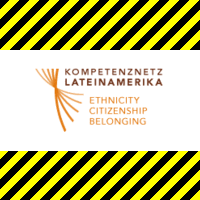Johanna Below da Cunha Dipl. Reg. Wiss. LA

Research Project
“Differentiated Citizenship and Education in the Brazilian Amazon: The Case of the Extractivist Reserve Tapajós-Arapiuns”
Between 1990 and 2009, the Brazilian government created 89 reserves for extractivism and sustainable development in an area of 24 million hectares in the Amazon region. Both social movements and governmental institutions have been emphasizing the importance of education for a sustainable development of these regions.
The objective of this research is to analyze the development of political discources and legal frameworks in relation to differentiated education for populations living in Extractivist Reserves (RESEX) on the national level and compare them with the local realities of a selected conservation unit: the extractivist reserve Tapajós-Arapiuns.
What progress and which challenges existed in implementing the right to education from the inhabitants of the RESEX? How did the access to education develop and how did the adaptation of education to local realities and culture evolve? What ist the role of education in the processes of indigenous ethnic (re-)afirmations within the RESEX? Building up on its observations this study aims to contribute to current debates on differenciated citizenship.
The study focuses on the period from the 1980ies until nowadays, and when necessary expands this perspective with a wider contextualization.
Publications
Below da Cunha, Johanna/ Schwabe, Nicole, „Konflikte um die Nutzung von Rohstoffen im brasilianischen Amazonasgebiet“, in: Tittor, Anne/ Schwabe, Nicole (Hg.): Menschen. Nutzen. Natur. Zum Umgang mit Rohstoffreichtum in Lateinamerika, Unterrichtsmaterialienreihe ›Wissen um globale Verflechtungen‹ des Center for Interamerican Studies an der Universität Bielefeld, Nr. 1, kipu Verlag/ Förderverein Interamerikanische Studien, Bielefeld 2016, S. 28-33.
Below, Johanna, „Educación, ciudadanía diferenciada y conflictos: el caso brasileño de la Reserva Extractivista Tapajós Arapiuns”, in: Potthast, Barbara/ Büschges, Christian/ Gabbert, Wolfgang/ Hensel, Silke/ Kaltmeier, Olaf (Hg.): Dinámicas de inclusión y exclusión en América Latina. Conceptos y prácticas de etnicidad, ciudadanía y pertenencia, Iberoamericana/ Vervuert, Madrid/ Frankfurt am Main 2015, S. 155-177.
Zaida Lobato, Mirta/ Potthast, Barbara/ Below da Cunha, Johanna/ Bendocchi Alves, Débora/ Ibañez, Carmen/ Wittger, Bea, Soziale Bewegungen in Lateinamerika. Kollektive Aktionen testen die Grenzen der Macht, Kompetenznetz Lateinamerika - Ethnicity, Citizenship, Belonging, Köln 2015.
Below, Johanna, „Zwischen Anspruch und Wirklichkeit: Die Gleichberechtigung von Frauen im brasilianischen Agrarreformprozess“, 2013, KLA Working Paper Series No. 1, pdf.
Conselho Nacional das Populações Extrativistas (CNS) (Hg.), Primeiros Resultados. Quéstionário sobre os grupos produtivos de mulheres extrativistas, Belém 2012, pdf.
Below, Johanna, „Marcha das Margaridas. Traditionelle Sammlerinnen Amazoniens fordern in Brasilia ihre Rechte ein“, 2011, http://brasilien.ded.de.
Below, Johanna, „Leben und Sterben für den Regenwald“, 2011, link.
Behm, Vera/ Below, Johanna, „Red de Apoyo: Menschenrechtler gegen Polizeigewalt“, in: Portuñol. Zeitschrift der Fachschaft Regionalwissenschaften & Regionalstudien Lateinamerika (WS 2007/2008), Nr. 31, S. 44-45.
Behm, Vera/ Below, Johanna, „Das Projekt 'Las Torres' in Venezuela: Eine Oase im Armenviertel“, in: Portuñol. Zeitschrift der Fachschaft Regionalwissenschaften & Regionalstudien Lateinamerika (WS 2007/2008), Nr. 31, S. 48.
Below, Johanna/ Meyer, Rebekka, „Agrarreform auf Venezolanisch“, 2007, http://venezuela-siglo20.blogspot.de/2007/09/agrarreform-auf-venezolanisch.html
